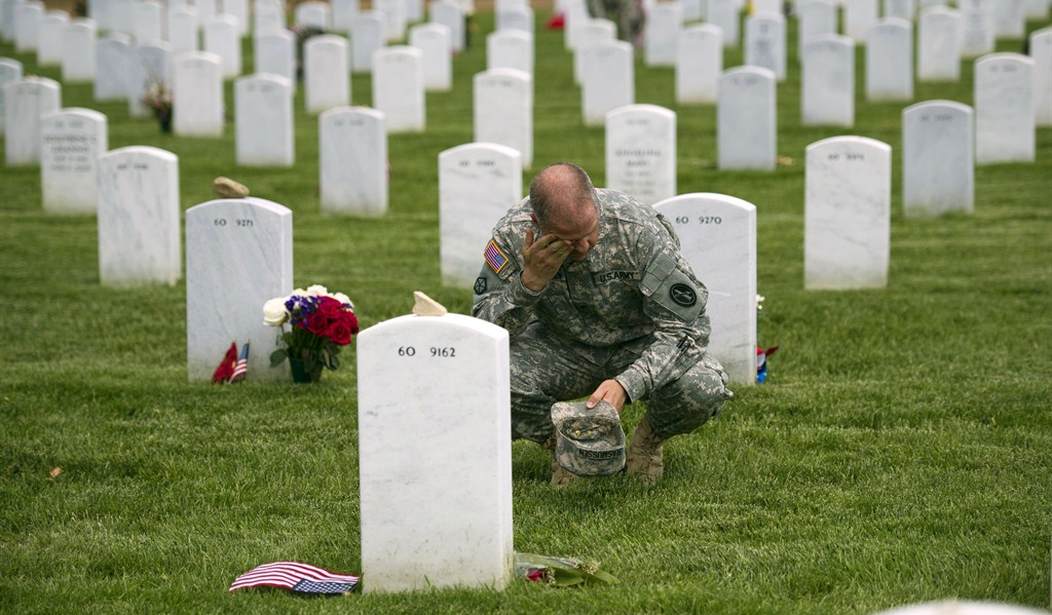It's Memorial Day week. You can tell as you flip through the local paper; Memorial Day notices appear as sales headlines and attention grabbers. "Memorial Day Sale" and "Pre-Memorial Day Sale." Pretty soon, we'll see post-Memorial Day sale advertisements.
Sales and barbecue are the two things that many people think about when Memorial Day is mentioned. What else? Well, for many Americans, it's the weekend that the pool opens and summer begins.
But it means more than that.
Memorial Day began soon after the Civil War as Decoration Day. It was the day the graves of the fallen members of the military were decorated to honor their sacrifice to keep our country united. They gave the ultimate sacrifice.
John Logan, who had served as a congressman from Illinois prior to the Civil War and then volunteered as a Union soldier and been promoted during the war to general, sparked Decoration Day. He issued an order in 1868 to honor those who had died in the Civil War. At that time, he was serving as commander in chief of the Grand Army of the Republic, a fraternal organization of Union veterans.
"The 30th day of May, 1868, is designated for the purpose of strewing with flowers, or otherwise decorating the graves of comrades who died in defense of their country," stated the order. "We should guard their graves with sacred vigilance," it said, adding that their deaths were "the cost of a free and undivided republic."
It was a high cost indeed. The Civil War was the deadliest war for Americans -- with the loss of more than 600,000 American military members. That first year, approximately 5,000 people gathered at Arlington National Cemetery to decorate the graves with American flags. Since then, the custom has grown and spread.
Recommended
Virginia's Arlington National Cemetery is today the graveyard for hundreds of thousands of United States service members. I've often walked through the cemetery, which is surrounded by thousands of small white gravestones, perfectly aligned, row after row. Their overwhelming numbers underscore the sacrifice others have made for us. Each gravestone marks not only the loss of a person who has died but also the loss to his or her family and friends. Miles of trails traverse the cemetery.
One of the most fitting tributes to the American military is one that was given before Memorial Day was recognized -- President Abraham Lincoln's Gettysburg Address.
Lincoln delivered his address at the dedication of the Soldiers' National Cemetery in Gettysburg, Pennsylvania, in November 1863, while the Civil War was still raging. He was not the main speaker for the day but had been invited as an afterthought. His speech was so short (less than two minutes) that the photographer did not have time to get a picture of him delivering it.
The speech, one of my favorites, is engraved in the Lincoln Memorial, across the Potomac River from Arlington National Cemetery.
Its 278 words don't include "I" or "me," but they do take the audience from our start as a nation and the American Revolution to Lincoln's wishes for the future of our nation:
"Four score and seven years ago our fathers brought forth, upon this continent, a new nation, conceived in liberty and dedicated to the proposition that all men are created equal. ... It is rather for us to be here dedicated to the great task remaining before us -- that from these honored dead we take increased devotion to that cause for which they gave the last full measure of devotion -- that we here highly resolve that these dead shall not have died in vain, that this nation, under God, shall have a new birth of freedom, and that government of the people, by the people, for the people shall not perish from the earth."
Taking time to reflect on the importance of Memorial Day may prove difficult to do at home, the beach or the pool amid the sales and barbecues. But we should all pause and remember -- to honor those who have given their lives for our country and to dedicate ourselves to living in a way that ensures their sacrifices were not in vain.

























Join the conversation as a VIP Member